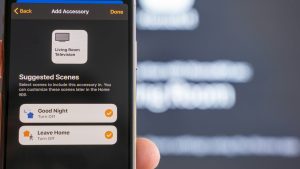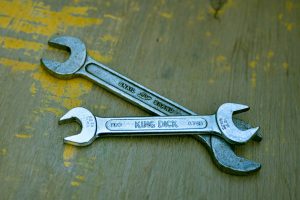AI-Proof Careers: Skills Robots Can’t Replicate (Yet)
Artificial intelligence (AI) has been making significant strides in various industries, revolutionizing the way we work and live. From self-driving cars to intelligent virtual assistants, AI technology has become an integral part of our modern society. With the rapid advancements in AI, concerns about job security have also emerged. Will robots and machines take over our jobs? The simple answer is no. While AI may be able to perform certain tasks faster and more accurately than humans, there are some skills that robots simply can’t replicate (yet). In this article, we’ll explore the concept of AI-proof careers and the skills that make them irreplaceable by machines.
What are AI-Proof Careers?
Before delving into the skills that AI can’t replicate, it’s important to understand the concept of AI-proof careers. These are professions that are unlikely to be replaced by AI in the near future. While AI may be able to automate certain aspects of these jobs, there are core skills and abilities that are unique to humans and cannot be replicated by machines.
AI-proof careers are not limited to certain industries or job titles. They exist in various fields, such as healthcare, education, and creative industries. What they have in common is the human element, which is crucial for success in these roles. Let’s take a closer look at the skills that make these careers AI-proof.
Creativity and Innovation
One of the main reasons why AI will not be able to replace certain jobs is because of its lack of creativity and innovation. While machines can analyze data and generate insights, they are limited by their programming and cannot think outside the box. On the other hand, humans have the capacity to come up with new ideas, think critically, and solve complex problems. This is why careers in fields such as art, design, and content creation are considered AI-proof.
Content Creation
Creating compelling and engaging content requires a level of creativity and emotional intelligence that AI simply doesn’t possess. For example, a machine may be able to write a news article, but it cannot replicate the unique tone, perspective, and storytelling of a human writer. Content creation also involves understanding human emotions and using them to connect with an audience. This is a skill that cannot be replicated by AI, making it an essential aspect of AI-proof careers.
Art and Design
Similarly, careers in art and design require a high level of creativity and innovation. While AI can generate graphics or designs based on algorithms, it lacks the human touch and artistic vision. Human artists and designers use their imagination and emotions to create unique and impactful pieces of work. This sets them apart from AI and makes their careers resistant to automation.
Emotional Intelligence and Empathy
Another aspect that makes certain careers AI-proof is emotional intelligence and empathy. While AI can process and analyze data, it cannot understand or relate to human emotions. Jobs that require a high level of emotional intelligence and empathy, such as counseling, social work, and teaching, are prime examples of AI-proof careers.
Counseling
Counseling and therapy are inherently human professions that require a strong understanding of emotions and relationships. While AI may be able to provide information or resources, it cannot replace the human connection and understanding that is crucial in counseling. The ability to empathize and form a bond with clients is what makes this career AI-proof.
Teaching
Teaching is also considered an AI-proof career due to the emotional intelligence and empathy required to be successful. Teachers not only impart knowledge but also mentor and guide their students. They need to understand the unique needs and challenges of each student and use emotional intelligence to create a positive learning environment. AI may be able to assist with certain aspects of teaching, but it cannot replace the personalized and human element of this profession.
Adaptability and Lifelong Learning
Finally, the ability to adapt and continuously learn new things is a crucial aspect of AI-proof careers. As technology evolves, so do the skills and requirements of certain jobs. The most successful professionals are those who can adapt to change and constantly learn new skills. This is something that robots and machines are not capable of. The human brain has the capacity to continually acquire knowledge and adapt to different situations, making it an essential skill for AI-proof careers.
In conclusion, while AI may be able to automate certain tasks, there are some career paths that will remain AI-proof. These careers require skills and abilities that are unique to humans and cannot be replicated by machines. Professionals in these fields should continue to hone their skills and embrace technology as it evolves. After all, the best results often come from the collaboration of human skills and AI technology.











